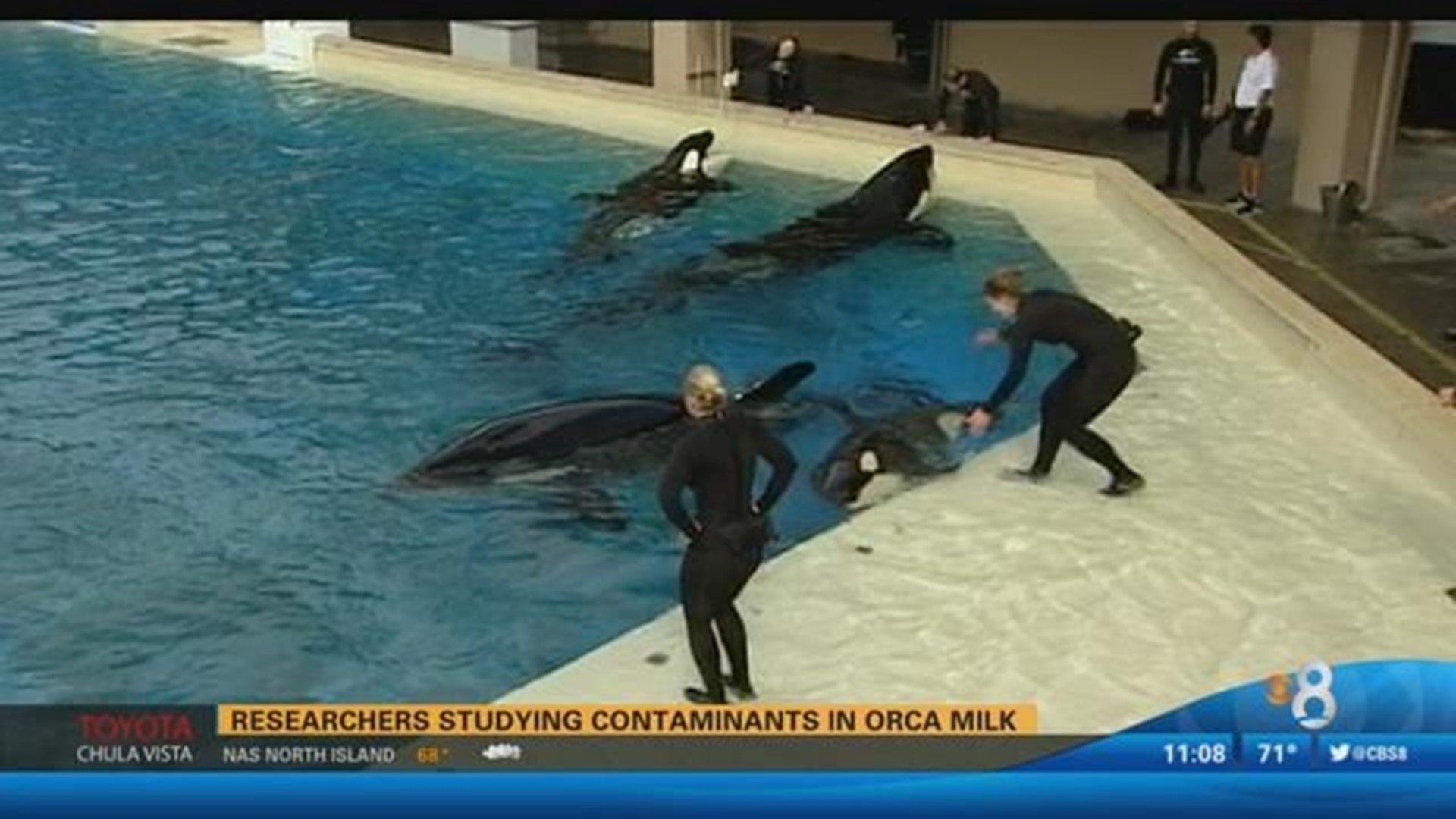SAN DIEGO (CBS 8) - CBS News 8's Kelly Hessedal went behind the scenes at Seaworld to get an inside look at groundbreaking research on killer whales and their babies.
Trainers and vets are studying the amount of contaminants transferred to calves in mother's milk. They're studying the whales' blubber layer, as well as, the whales' breast milk to find out what sort of levels of toxins are in it.
Dr. Dawn Noren says southern resident killer whales in the Pacific Northwest are endangered. She says studying Kalia and Amaya and gathering research in a controlled and safe environment now will be able to help save future whales down the road
"We have models trying to predict contaminant loads. One of the missing factors is how much are these calves getting during lactation," Noren said.
Noren says researchers are also using ultrasounds to gather information.
Watch CBS News 8's Kelly Hessedal's video above at SeaWorld.

